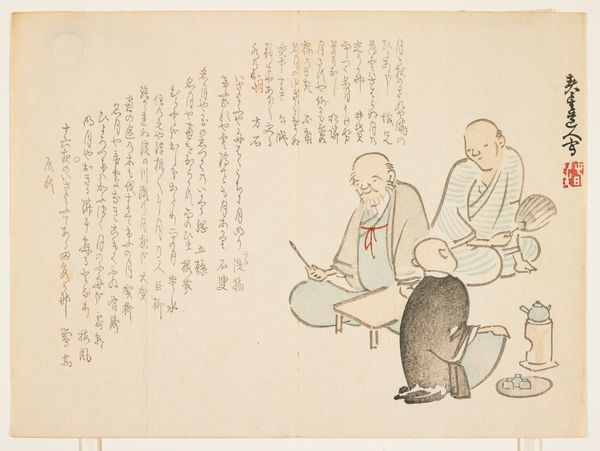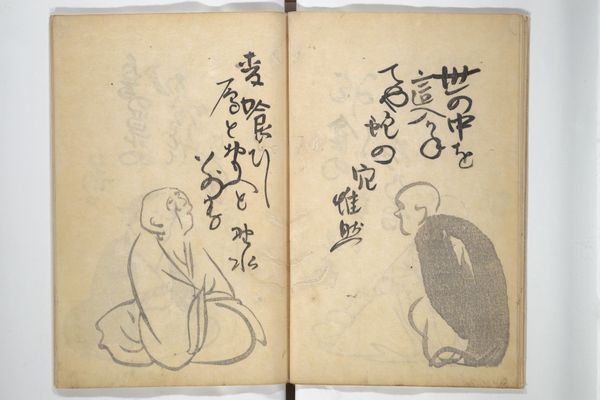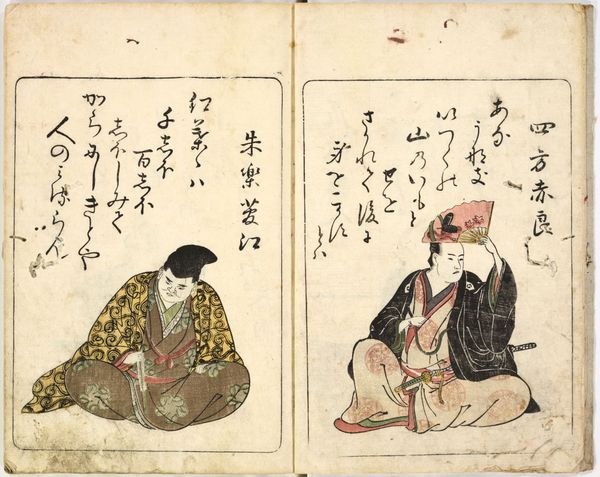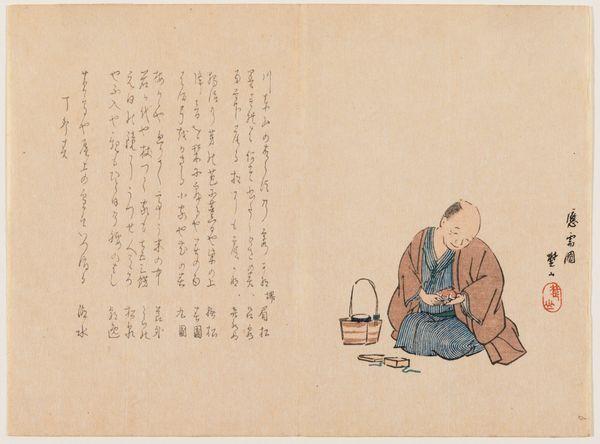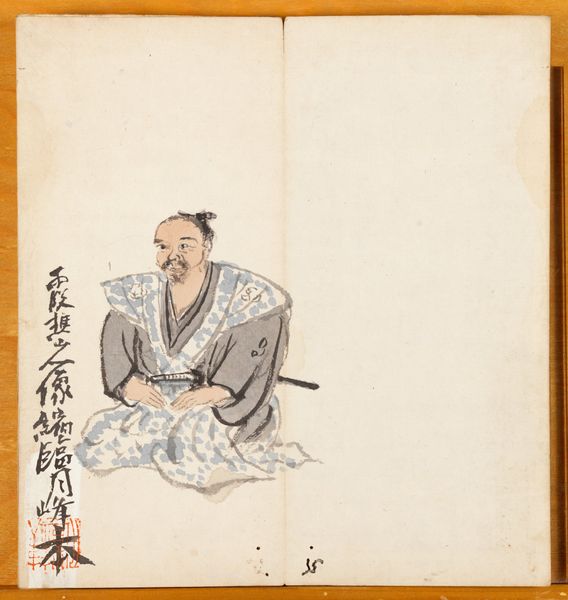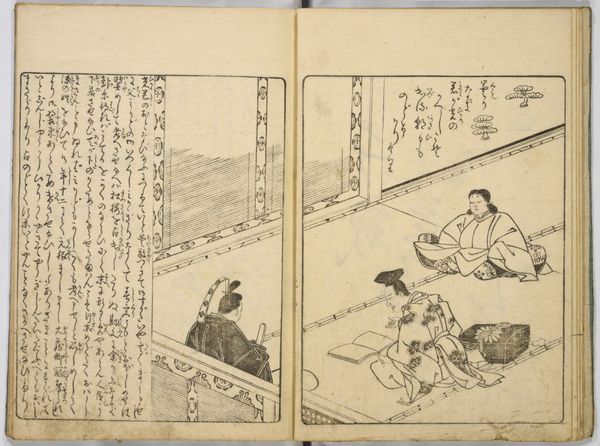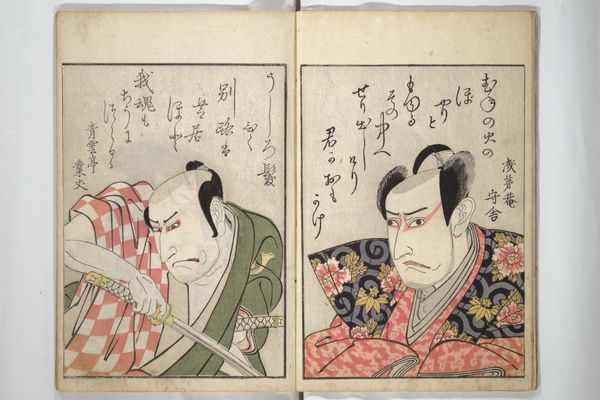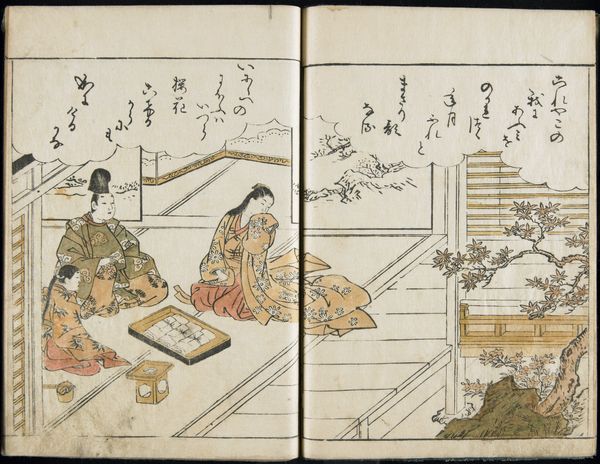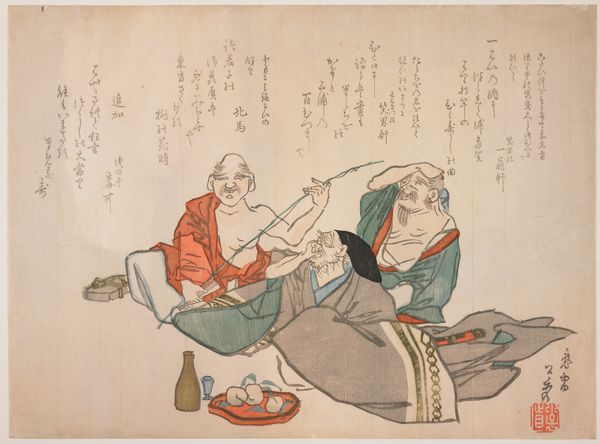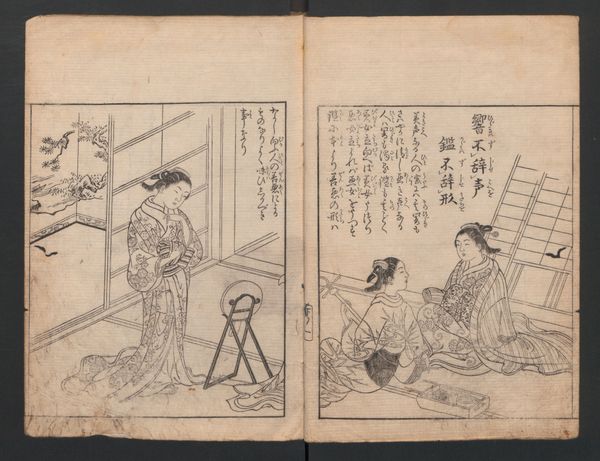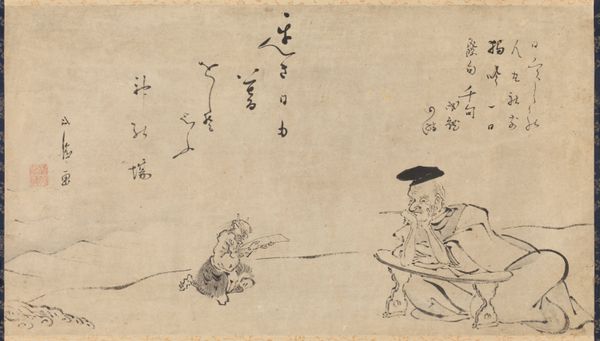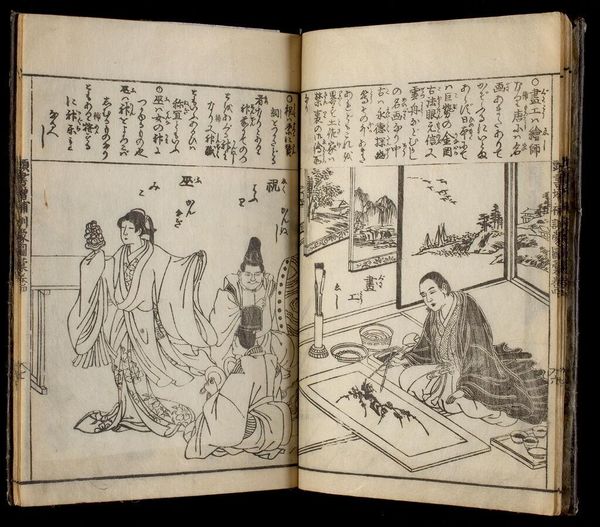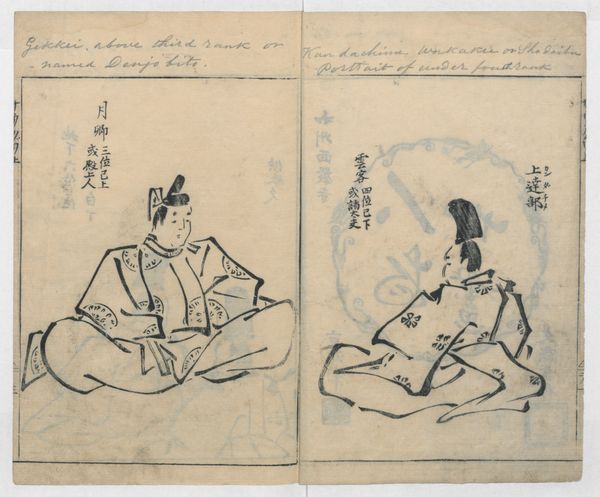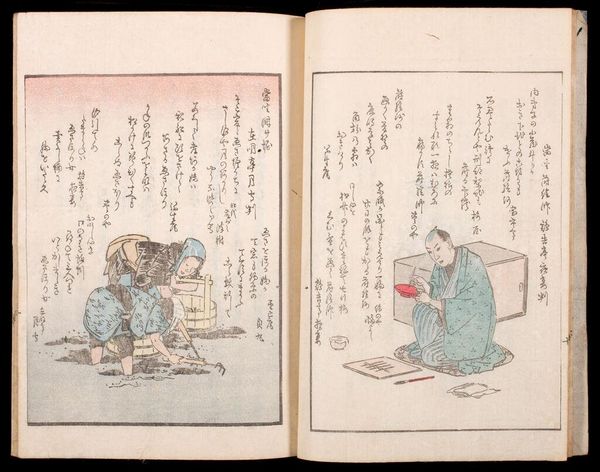
The Thirty-six Immortals of Haikai Verse (Haikai sanjūrokkasen 俳諧三十六歌僊) 1799
0:00
0:00
drawing, paper, watercolor, ink
#
portrait
#
drawing
#
book
#
asian-art
#
ukiyo-e
#
paper
#
watercolor
#
ink
Dimensions: 10 5/8 × 7 1/2 in. (27 × 19 cm)
Copyright: Public Domain
Yosa Buson created this woodblock printed book, "The Thirty-six Immortals of Haikai Verse" in Japan, sometime before his death in 1784. Buson was not only a visual artist but also a haikai poet, so this work speaks to a specific set of aesthetic and literary practices. The Thirty-Six Immortals of Poetry was a canon of exemplary waka poets of the past, selected during the Heian period. This canon functioned as a kind of 'Hall of Fame,' a means of standardizing poetic and aesthetic values, and promoting them through the cultural institutions of the court. In Buson’s time, a parallel canon of haikai poets was assembled, reflecting a cultural effort to legitimize haikai as a literary genre. Buson’s style is informal, even comical. These are not the portraits of solemn worthies, but approachable, human figures. For an art historian, a work like this becomes an opportunity to investigate the social function of literary and aesthetic canons, and the cultural work required to maintain them.
Comments
No comments
Be the first to comment and join the conversation on the ultimate creative platform.
